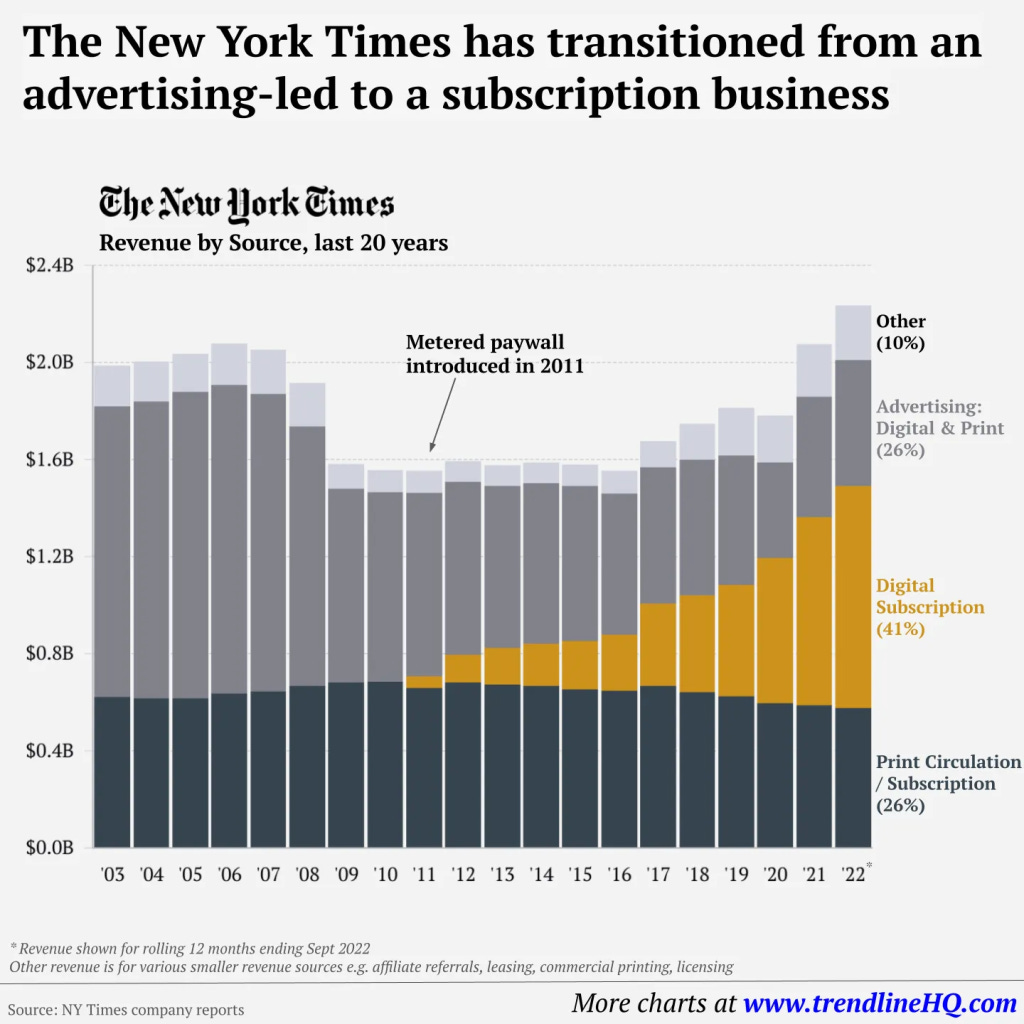Aldo's Notes #28
The One with WhatsApp dominating; Binge and advertisers; Google's Discovery ads; NYT's revenue transition and The Comprehensive Guide to Identifying and Combating PPC Click Fraud
WhatsApp Dominates as Top Messaging App Globally in 2023
In a comprehensive analysis of Android app data from 100 countries using Similarweb Mobile App Intelligence, WhatsApp emerges as the top messaging app worldwide in 2023, followed by Facebook Messenger and Telegram.
Top three messaging apps in 2023: WhatsApp, Facebook Messenger, Telegram
WhatsApp: #1 in 63 countries
Facebook Messenger: #1 in 16 countries
Telegram: #1 in 10 countries
Most engaging app: WhatsApp (over 90% daily active users)
Top six messaging apps: WhatsApp, Facebook Messenger, Telegram, Viber, Line, Snapchat
97% of dataset represented by top six apps
26% of global population access one of these six apps daily
Why it's important: these numbers demonstrate the massive influence and engagement of these messaging platforms.
BINGE Welcomes 21 Top Brands
MediaWeek reports on Foxtel's advertising plans for BINGE.
Foxtel Media announces 21 brand partners for BINGE
Advertising starts on 30 March
Brands across 12 business categories (insurance, food, travel, auto)
Maximum of 4 brands per category for low clutter
Minimal impact on viewer experience, maximum impact for brands
Low ad clutter leads to 34% higher spontaneous ad recall
BINGE has 1.4 million subscribers
New seasons of HBO titles and NBCU titles available
Light ad loads, High Definition, and Warner Bros Discovery deal make BINGE attractive
Why it's important: will this new business model work?
Boost Your Conversions with Google's Enhanced Discovery Ads
Google has shared the latest improvements to Discovery Ads.
New Discovery ad improvements help brands stand out:
Spark audience interest with product feeds.
Improve results with product-level reporting and data-driven attribution.
Measure incremental impact with Conversion Lift experiments.
Expanded product feed availability allows more relevant and engaging ads.
Using product feeds can result in 45% more conversions at a similar CPA.
Pandora successfully used product feeds for Discovery ads, increasing sales and return on ad spend.
Product-level reporting allows tracking of individual item performance.
Data-driven attribution provides more accurate campaign performance insights.
Automated bidding strategies can be paired with data-driven attribution for more conversions.
Conversion Lift experiments help measure incremental conversions based on users or geography.
Why it matters: improved ads and better ROI? Yes, please!
From Clickbait to Quality: The NYT's Monetization Makeover
The chart below, from TrendlineHQ, shows how the NYT has been transitioning from digital advertising revenue to subscription revenue
In 2011, the NY Times changed strategy
Focused on quality content, asked users to pay directly
NY Times has 8.6 million paid subscribers
Broader shift in internet monetization in last 5-7 years
Early internet content was free, monetized through ads
Value went to aggregators like Facebook
Netflix, Spotify made customers pay for content
Transition impacts internet culture positively
Why it matters: shift from clickbait to quality content creates a healthier internet
The Comprehensive Guide to Identifying and Combating PPC Click Fraud
Published on Aldo’s Notes.
Click fraud is a major issue in PPC advertising, leading to wasted budgets and reduced campaign effectiveness.
Types of click fraud include competitor, publisher, and botnet click fraud.
Identifying click fraud involves monitoring traffic patterns, CTRs, conversion rates, and geographic anomalies.
Preventing click fraud can be achieved through IP exclusions, geotargeting, CAPTCHAs, tighter targeting, and adjusting keyword bidding strategies.
Responding to click fraud requires gathering evidence, contacting ad platforms, collaborating with publishers, and taking legal action if necessary.
Staying informed and vigilant about click fraud trends and best practices is crucial for effective prevention and response.
Why it matters: because fraud costs money









